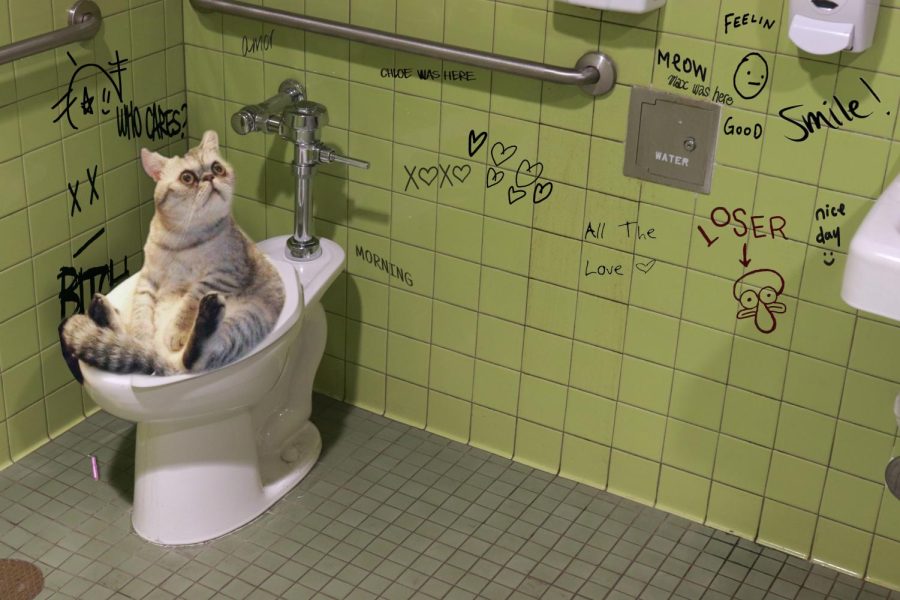The Consequences of Flushing Cat Poop Down Your Toilet - Safeguard Your Pipes
The Consequences of Flushing Cat Poop Down Your Toilet - Safeguard Your Pipes
Blog Article
Nearly everybody has their private thoughts involving Don’t flush cat feces down the toilet.

Introduction
As feline owners, it's necessary to bear in mind how we dispose of our feline pals' waste. While it may appear hassle-free to flush feline poop down the toilet, this practice can have harmful repercussions for both the setting and human health and wellness.
Ecological Impact
Flushing pet cat poop presents hazardous pathogens and bloodsuckers right into the water, posing a considerable risk to aquatic environments. These contaminants can negatively impact aquatic life and concession water top quality.
Health Risks
In addition to ecological issues, flushing pet cat waste can also posture health threats to people. Feline feces may contain Toxoplasma gondii, a parasite that can create toxoplasmosis-- a potentially extreme health problem, particularly for expecting females and individuals with damaged immune systems.
Alternatives to Flushing
The good news is, there are more secure and more accountable methods to throw away feline poop. Take into consideration the following options:
1. Scoop and Dispose in Trash
One of the most typical method of getting rid of pet cat poop is to scoop it right into a naturally degradable bag and throw it in the trash. Be sure to use a committed trash scoop and dispose of the waste without delay.
2. Use Biodegradable Litter
Select eco-friendly pet cat trash made from products such as corn or wheat. These clutters are eco-friendly and can be securely taken care of in the garbage.
3. Bury in the Yard
If you have a lawn, take into consideration hiding pet cat waste in a designated location away from vegetable yards and water resources. Make certain to dig deep adequate to stop contamination of groundwater.
4. Mount a Pet Waste Disposal System
Invest in an animal waste disposal system particularly created for cat waste. These systems utilize enzymes to break down the waste, minimizing odor and environmental effect.
Conclusion
Liable family pet ownership extends past giving food and sanctuary-- it additionally entails proper waste administration. By refraining from purging cat poop down the bathroom and opting for alternate disposal techniques, we can reduce our ecological impact and shield human wellness.
Why You Should Never Flush Cat Poop Down the Toilet
A rose by any other name might smell as sweet, but not all poop is created equal. Toilets, and our sewage systems, are designed for human excrement, not animal waste. It might seem like it couldn’t hurt to toss cat feces into the loo, but it’s not a good idea to flush cat poop in the toilet.
First and foremost, assuming your cat uses a litter box, any waste is going to have litter on it. And even the smallest amount of litter can wreak havoc on plumbing.
Over time, small amounts build up, filling up your septic system. Most litter sold today is clumping; it is made from a type of clay that hardens when it gets wet. Ever tried to scrape old clumps from the bottom of a litter box? You know just how cement-hard it can get!
Now imagine just a small clump of that stuck in your pipes. A simple de-clogger like Drano isn’t going to cut it. And that means it’s going to cost you big time to fix it.
Parasitic Contamination
Believe it or not, your healthy kitty may be harboring a nasty parasite. Only cats excrete Toxoplasma in their feces. Yet it rarely causes serious health issues in the cats that are infected. Most people will be fine too if infected. Only pregnant women and people with compromised immune systems are at risk. (If you’ve ever heard how women who are expecting are excused from litter cleaning duty, Toxoplasma is why.)
But other animals may have a problem if infected with the parasite. And human water treatment systems aren’t designed to handle it. As a result, the systems don’t remove the parasite before discharging wastewater into local waterways. Fish, shellfish, and other marine life — otters in particular — are susceptible to toxoplasma. If exposed, most will end up with brain damage and many will die.
Depending on the species of fish, they may end up on someone’s fish hook and, ultimately on someone’s dinner plate. If that someone has a chronic illness, they’re at risk.
Skip the Toilet Training
We know there are folks out there who like to toilet train their cats. And we give them props, it takes a lot of work. But thanks to the toxoplasma, it’s not a good idea.

I was brought to that editorial about How to Dispose of Cat Poop and Litter Without Plastic Bags through an acquaintance on another web page. For those who liked our blog entry plz do not forget to share it. Thanks a lot for your time invested reading it.
Click Here Report this page